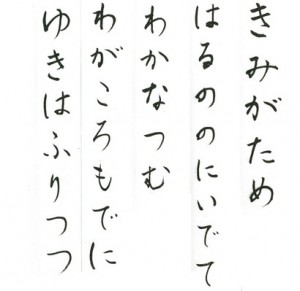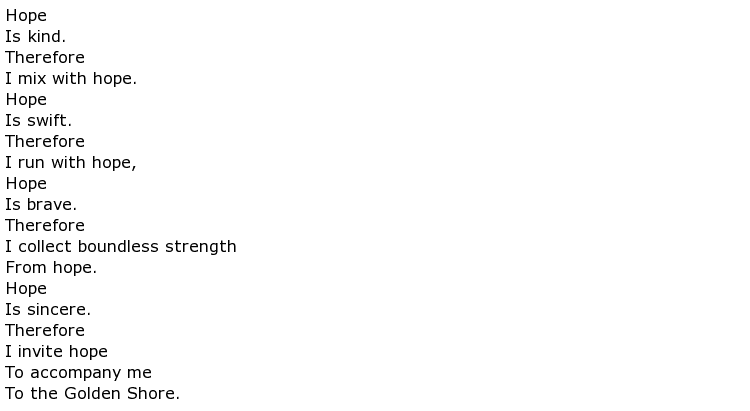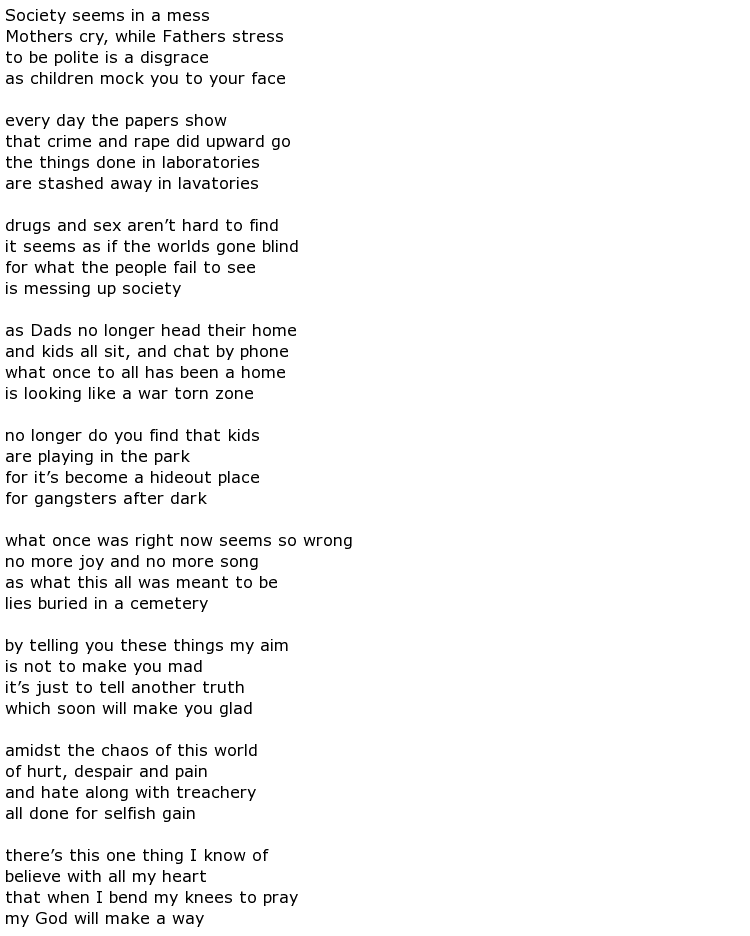 As we read through literature, whether drama or poetry or prose, we can usually identify a primary influence that gave the writers their direction. Certainly when it comes to poetry about hope, much of the inspiration for these works is drawn from some religious or spiritual source. For instance, many of the spiritual leaders who have their beginnings in the eastern world, primarily Asia, also bring with them a well-rounded education which includes some giftedness in poetry. For example, there is the works of Sri Chinmoy, a noted Hindu spiritualist from the region that is modern-day Bangladesh. In the mid-1960s, Chinmoy relocated to the United States where he worked as a clerk in embassy office. However, many of his coworkers recognized his skills as a teacher of Hinduism and encouraged him to offer classes and lectures on the subject. He was soon the teacher to such famous Americans as Carlos Santana and Roberta Flack. It should be no wonder that his poetry would include some inspiration poems on the topic of hope.
As we read through literature, whether drama or poetry or prose, we can usually identify a primary influence that gave the writers their direction. Certainly when it comes to poetry about hope, much of the inspiration for these works is drawn from some religious or spiritual source. For instance, many of the spiritual leaders who have their beginnings in the eastern world, primarily Asia, also bring with them a well-rounded education which includes some giftedness in poetry. For example, there is the works of Sri Chinmoy, a noted Hindu spiritualist from the region that is modern-day Bangladesh. In the mid-1960s, Chinmoy relocated to the United States where he worked as a clerk in embassy office. However, many of his coworkers recognized his skills as a teacher of Hinduism and encouraged him to offer classes and lectures on the subject. He was soon the teacher to such famous Americans as Carlos Santana and Roberta Flack. It should be no wonder that his poetry would include some inspiration poems on the topic of hope.
Untitled
by Sri Chinmoy

Tanka is a form of Japanese poetry that has been in use for over 1,300 years. This traditional waka, or Japanese song, was originally composed to be chanted out loud to a musical accompaniment. It’s form is that of an unrhymed verse of thirty one sound units or syllables, written in a single sentence without punctuation. There is a rhythm, not like western poetry with a set number of syllables to a line, but dealing with the number of breaths in between each sound unit. The standard patter is 5, 7, 5, 7, 7. The topics of such poems can be any number of things, but especially all of the human emotions, of which hope is certainly included. This form of poetry is still being used today. In fact, the recent earthquake and tsunami which happened in March of 2011 has inspired several of the Japanese survivors to write Tanka poetry which expresses all of their anger, grief and hope. It went on display at San Francisco State University in an exhibit that opened on January 31, 2013. Here is an example of a Tanka poem.
Untitled
by Michael McClintock

As with the Japanese natural disaster and the human tragedy the surrounded it, others have found themselves in situations where hope was the only thing they seemed to have left. Many turn to their religious beliefs as part of this process. They call out to God, in search of answers and for guidance in the coming days. When things seem to start falling around us, we have only a couple of choices, to either succumb to the situation and allow it to consume us, or to stand up against it, with hope that there is a better day to come. Such is the motivation behind this next poem. The author wrote this after the world around her seemed dismal and bleak. She sought her God’s favor to find a solution to the events which had led her to such a sad condition.
God Will Make A Way
by Lydia Preston



You must register to comment. Log in or Register.